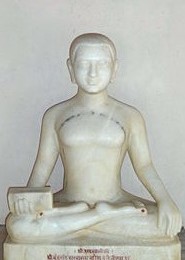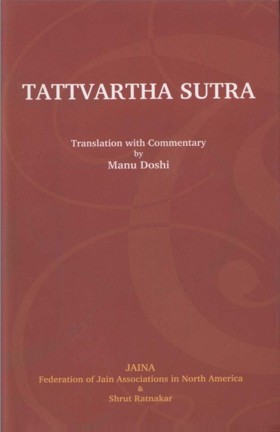02.50 Nāraksammoorchhino Napunsakāni
Audio: Sanskrit: नारकसम्मूर्छिनो नपुंसकानि ।
Hindi: नारक और सम्मूर्छिम नपुंसक ही होते है।
02.51 Na Devāh
Audio: Sanskrit: न देवा: ।
Hindi: देव नपुंसक नही होते।
02.52 Aupapātikcharamdehottarnpurushā'sankhyey-avarshāyusho'napavartyāyushah
Audio: Sanskrit: औपपातिकचरमदेहोत्तमपुरुषाsसंख्येयवर्षायुषोsनपवर्त्यायुष: ।
Hindi: औपपातिक (नारक और देव), चरमशरीरी, उत्तमपुरुष और असंख्यातवर्षजीवी - ये अनपवर्तनीय आयुवाले ही होते है।
02.50-52
English: These three sutras deal with gender and life span. They stipulate that the infernal and Sammoorchchhīm (agglutinated) beings are invariably hermaphrodite, while heavenly beings have either a male or a female body. All others can be male or female or hermaphrodite.
The life span can be reversible or irreversible. All heavenly and infernal beings, those who are at the end of the life cycle and those having immeasurably long life have irreversible life span, while others can have either reversible or irreversible one. The reversibility is only in one direction; it can be reduced but cannot be increased. The reversible life span is termed as Apavartaniya and the irreversible as Anapavarīaniya.
 Acharya Umaswati
Acharya Umaswati
